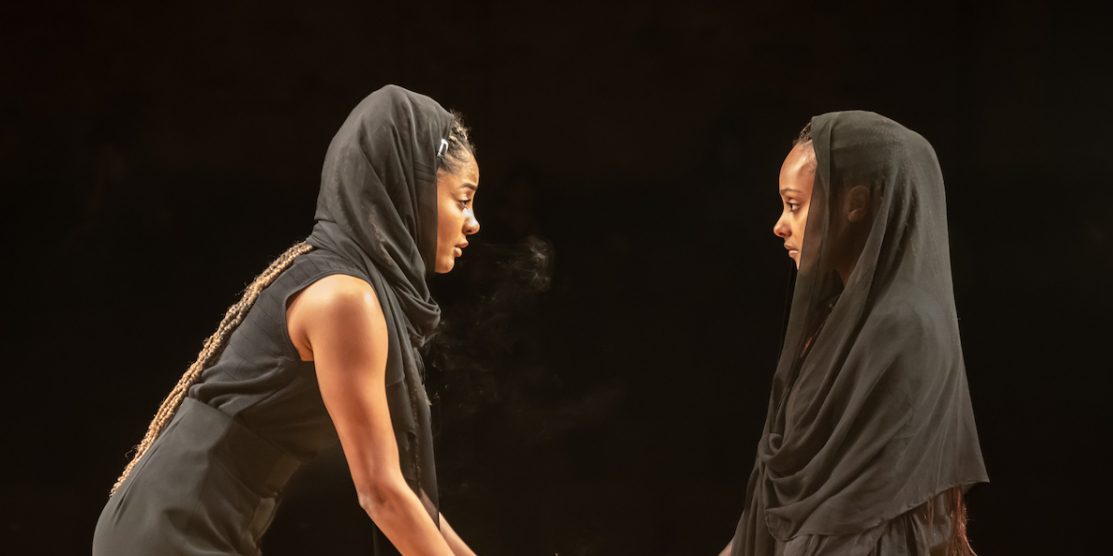The house of Ife is not a happy house. Ife (short for Ashenafi, pronounced as Eyef), the first- born of the family, just died of drug-related complications, age 28. His twin sister, Aida, can hardly bear the pain and rapidly disintegrates. Their father, Solomon, left to Ethiopia some eight years ago, to do what he calls “God’s work”, and while at it created a new family with four children and another wife (the term “bigamy” is freely, and rightly, mentioned). He now comes back to bury his eldest (and fails to make it on time), and a dull moment cannot be counted on.
Meron, the mother and deserted wife, is mad at Solomon but still carries a torch for him. In one of the (many) tender moments in the play, they share a kiss full of genuine longing and mutual ache, secretly witnessed by Aida. The other siblings, Tsion and Yosi, also need a closure, and closure they’ll get, along with a hugh dramatic payoff for the audience.
Beru Tesema’s play, commissioned by the Bush theatre and beautifully directed by its artistic director, Lynette Linton, explores themes like grief, blame (and the need to blame others), commitment (or lack off) to one’s roots, and belonging in general. It does it with depth and generosity of spirit, with the right amount of humor, in the vain of grieving-family plays like “August, Osage County” (Tracy letts) and “The memory of water” (Shelagh Stephenson). We don’t get to see many plays about Ethiopian characters, and may this truly great piece won’t be the last.
The acting is terrific and exquisite all round. The brilliant cast makes us believe it’s a real family. Jude Akuwundike brings pathos and heart to the (perhaps) abusive and manipulative father. Sarah Priddy is spot-on as the mother, all mixed emotions and conflicted internal turmoils. Apparently, she quit the advertising industry for professional acting only seven years ago, and their loss is definitely our gain. Karla-Simone Spence is glowing, majestic, and heart-breaking as Aida, left alone in the world without her other half. Aida is an artist who can’t make art after her twin’s tragic demise, but ironically, Spence is making gorgeous art out of her character’s pain. When quoting Baldwin, who said “Love is a battle, love is a war, love is a growing up”, she sums up some of the play itself. Yohanna Ephrem as the “other daughter” is equally good and convincing, a picture of quiet bitterness and sad resilience. And Michael Workeye actually steals the show (a tough job) as Yosi, the youngest brother. At first it seems like Yosi is written and existed as a pure comic relief. Workeye nails every joke with perfect timing and nuanced body language. He calls his sisters “bruv” and “man” and he’s consistently hilarious until this “propa talented” young actor, as Yosi would describe him in his own private slang, shows his other colors and stunningly exposes Yosi’s raw pain, a highlight of an evening full of highlights.

